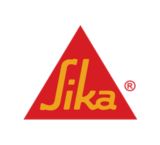ROOF MAINTENANCE PROGRAM
Is your old roof causing you headaches? Are you looking to extend your roof's life or considering a roof replacement? If so, contact Sika Sarnafil for a FREE roof evaluation. Fill out the form and upon receipt of this information, a Sika Sarnafil representative will contact you to arrange a no-obligation roof walk which will deliver:
- Analysis of general roof conditions
- Analysis of the environmental conditions affecting the roof such as wind and the type of surrounding terrain
- Recommendations based on observed roof conditions.
And, if a more detailed analysis is needed of specific conditions, the Sika Sarnafil representative can recommend a local roofing consultant or contractor to work with you.
HOW TO DESIGN A ROOF MAINTENANCE PROGRAM
Once you purchase a new roof, it is important to develop a comprehensive maintenance plan. Unfortunately, after a new roof system is installed, it is often the most forgotten and ignored of all building components. Meanwhile, other areas and systems receive routine maintenance. What many building owners don’t realize is that small problems stemming from neglect, normal aging, abuse, contamination, or accident may result in extensive, costly repairs or premature failure if not addressed early on.
The answer lies in conducting regular roof maintenance inspections. Using a three-step approach, here’s how to ensure your roof gets the attention it deserves:
STEP ONE - SCHEDULE ROUTINE INSPECTIONS
To prolong the life of your roof system, Sika Sarnafil suggests scheduling at least two inspections a year – one in the spring and one in the fall. In the spring, check for damage that may have occurred over the winter. Be sure the roof system is in good condition for the upcoming summer heat and storms. As winter approaches, make sure the roof is ready to weather high winds, snow and cold temperatures. You should also inspect the roof after a severe storm or wind event throughout the year.
STEP TWO- DEVELOP A CHECKLIST
When starting an inspection program first decide on the type of system that will be used for filing, accessing and updating information about the roof’s condition. You’ll want general information such as the roof plan (with dimensions if possible) showing location of rooftop equipment, details, roof access and warranty information. Additional file information should include:
- Detail drawings
- Deck type and thickness
- Original specifications, approved submittals
- Warranty information
- Prior inspection and maintenance reports
- Details of any changes made to the roof system, substrate and roof top equipment.
STEP THREE – THE INSPECTION
When conducting the inspection, a systematic approach works best, with inspection items grouped as follows:
- Maintenance Items
- Condition of Structure
- Condition of Roofing Membrane
- Condition of Flashing
Using a checklist approach, items can be marked as “accepted”, “minor problem” or “major problem.” The location and action taken should be noted along with the date of the fix. All components should be closely inspected with particular attention to sealants, pitch pans, physical damage, drains and drainage systems and debris.
If repairs are needed, contact a Sika Sarnafil authorized applicator to ensure a quality job.
